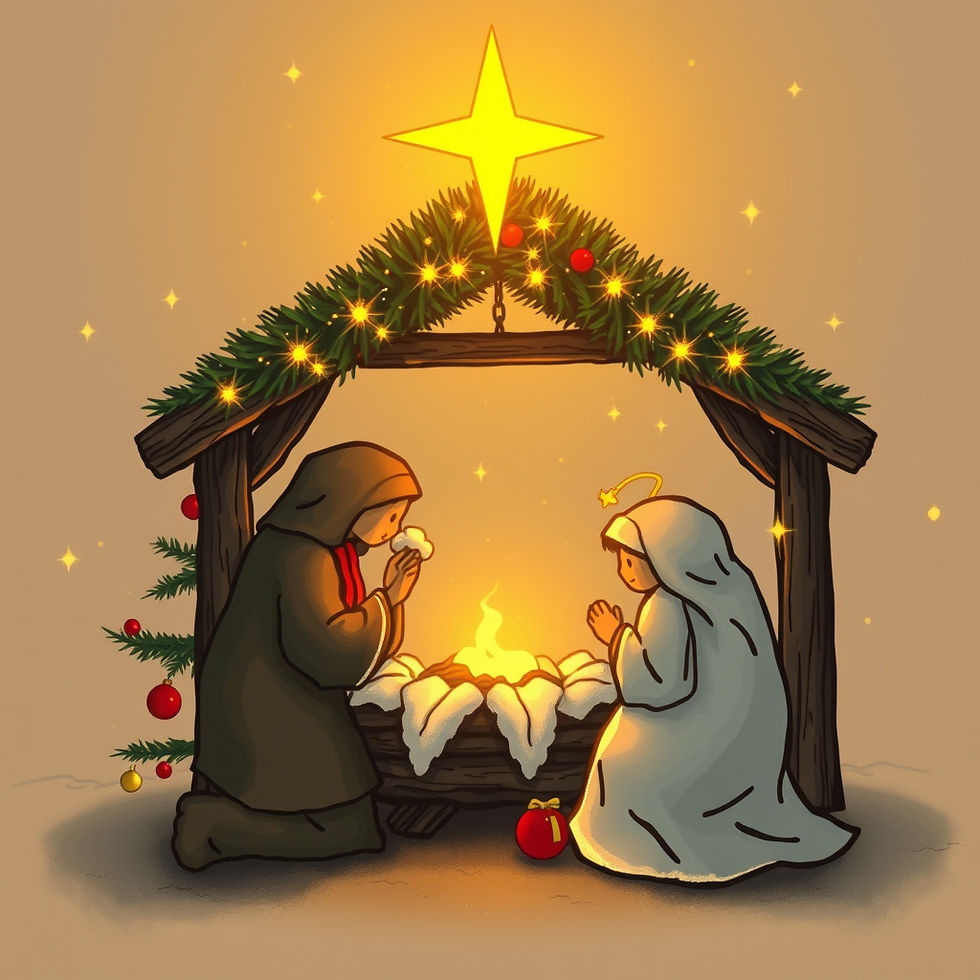Why the Reformation Matters
- Eldon Peterson
- Oct 5, 2017
- 3 min read
While Halloween is likely to be the first October holiday that comes to your mind, there are other significant dates that we should circle. If you’re Canadian, the second Monday of October is circled as Thanksgiving. On the US calendar, on the second Monday of October we remember that in “1492, Columbus sailed the ocean blue”. But there is another date worth remembering in October: Reformation Day.
What is Reformation Day? On Reformation Day we remember that on October 31, 1517 Martin Luther nailed his 95 Theses on the Castle Church door in Wittenberg, Germany. What? Who? It’s likely that the meaning or importance of these escape you. However, since this is the 500th anniversary of the date that traditionally marks the start of the Reformation, it is likely that you will be hearing much more about it.
Yet, in order to write it on our calendar, we must first understand the meaning and importance of the Reformation. How does this event that occurred 500 years ago have any significance for us today? The short answer is that the Reformation matters because by putting the Bible at the center of the life of the church changes were brought to the world.
In the 1500’s the world was moving from the Middle Ages through the Renaissance Age. Two of the notable events leading up to this was the black plague and the development of the printing press. The plague brought mortality to the forefront of people’s thinking and the printing press made it possible for the printed word like the Bible to be available to all. The Reformation made it possible for ignorance and fear to be curbed by the knowledge and hope revealed to all by God in the Scripture.
Luther didn’t anticipate that by hanging his 95 Theses on the church door he would start a revolution. He posted them as an invitation for academic debate on these important spiritual matters. He was driven to write them because of he was distraught by the practice of the church in selling indulgences (forgiveness of sins) to fund their building projects. In this single event, we mark the start of the Protestant Reformation that brought people the hope they needed and forever changed the world.
Throughout his life, Luther taught, preached and defended the apostle Paul’s doctrine that justification (salvation) was granted by faith alone and that good works and the sacraments were not necessary for salvation. His preaching, writing and his work to translate the Bible into the language of the people so that all could read the Word of God, played an important role in the Reformation. While the selling of indulgences may have been the spark for Luther’s writing the Theses, his emphasis on faith alone, grace alone and the Word alone were central not only in his teaching but was the backbone of the whole Reformation movement. The reformers message is captured in the 5 Solas of the Reformation: Scripture Alone, Faith Alone, Grace Alone, Christ Alone and for God’s Glory Alone.
The emphasis rightly starts with Sola Scriptura, Scripture Alone. For centuries, there had been a neglect of the Word of God and it was through the reformers that hope was brought back as the Word was placed at the center of the life of the church. The enduring legacy of the Reformation was their restoring the light and life of the gospel to the church through the Bible.
The Reformation brought other important changes to the church as well; one being the return of congregational singing. Two centuries earlier John Hus, a pre-reformer, was burned at the stake accused of being a heretic. Why? For reasons similar to Luther’s. Hus opposed the selling of indulgences and proclaimed the Bible to be the final authority for the church. A third accusation against him was his encouragement of congregational singing. The Reformation changed the church by making worship an active experience, opposed to the previously passive experience where the congregation had no voice.
Why should the Reformation matter to us today? Because the call of the reformers in the 1500’s remains a call to the church today as well. Christ’s church must keep the Word of God at the center of all that it does. We need to hear and apply their call that, “We are saved by grace alone through faith alone in Christ alone for the glory of God alone.” In October why not visit a church dedicated to these core Christian truths and discover what the Reformation means for you.




Comments